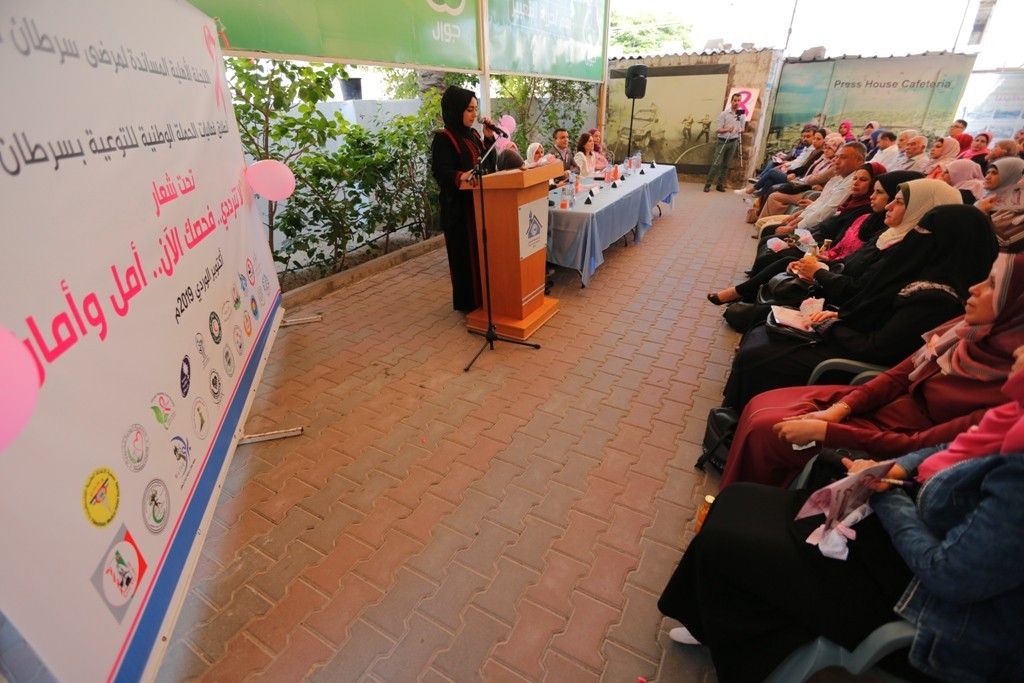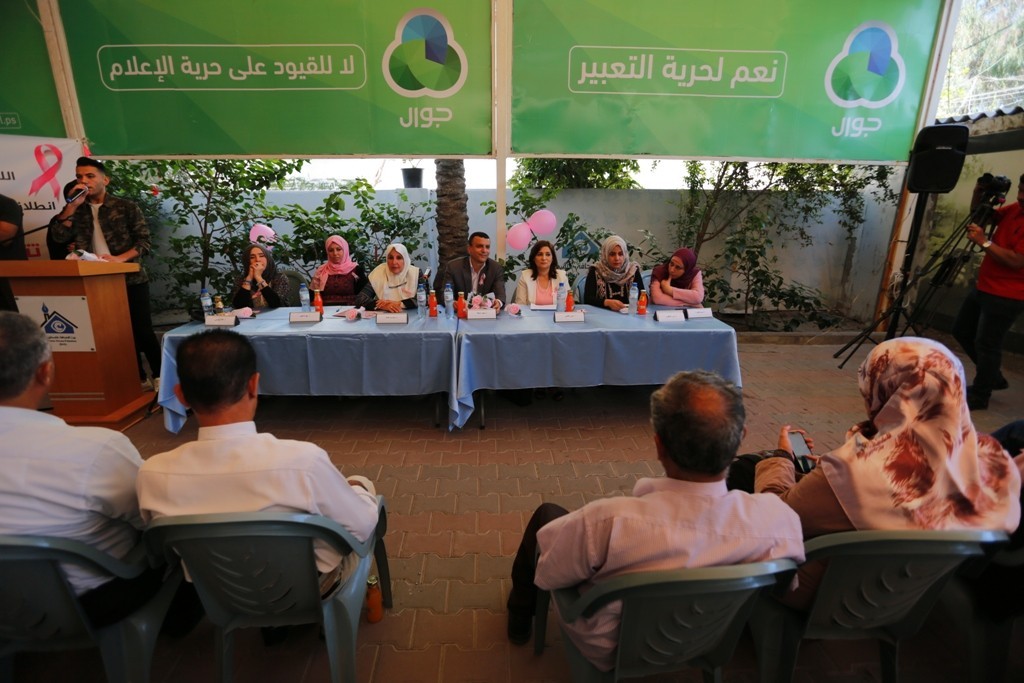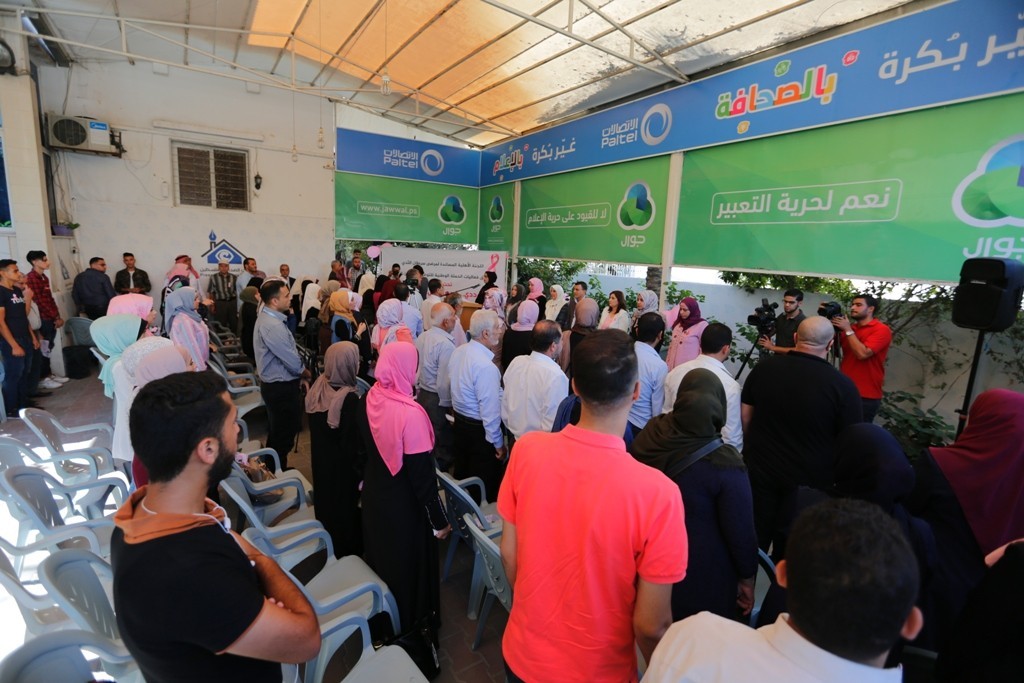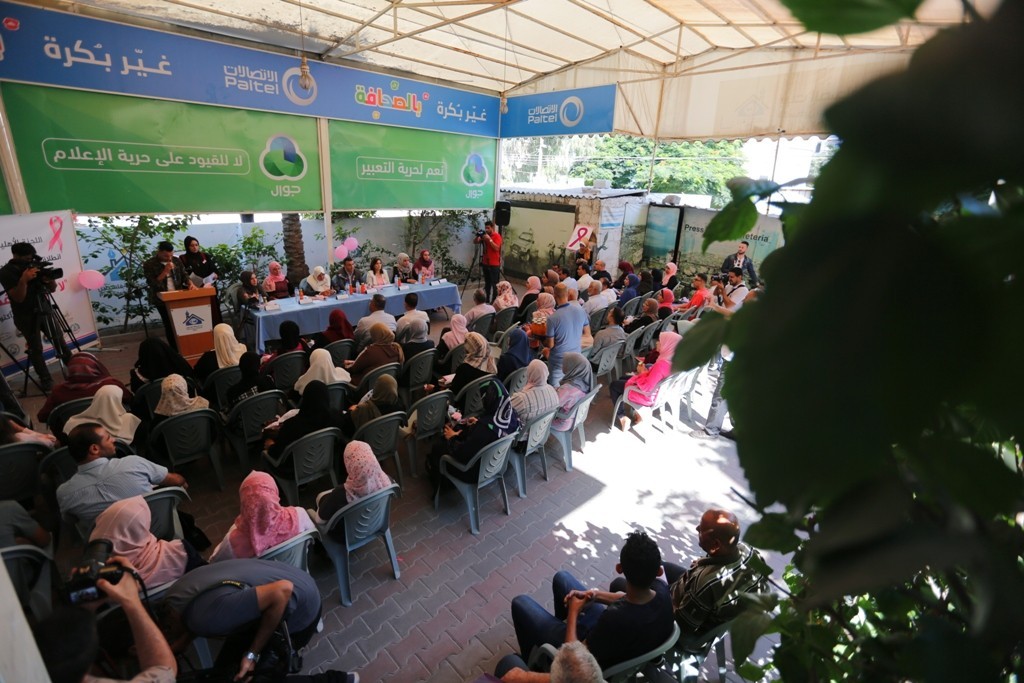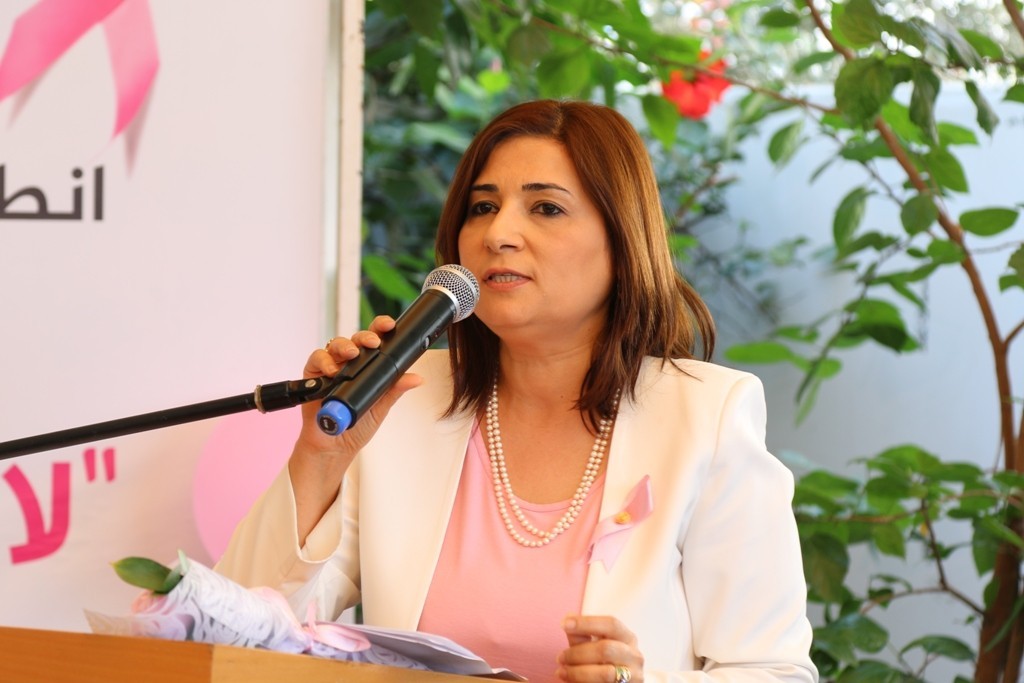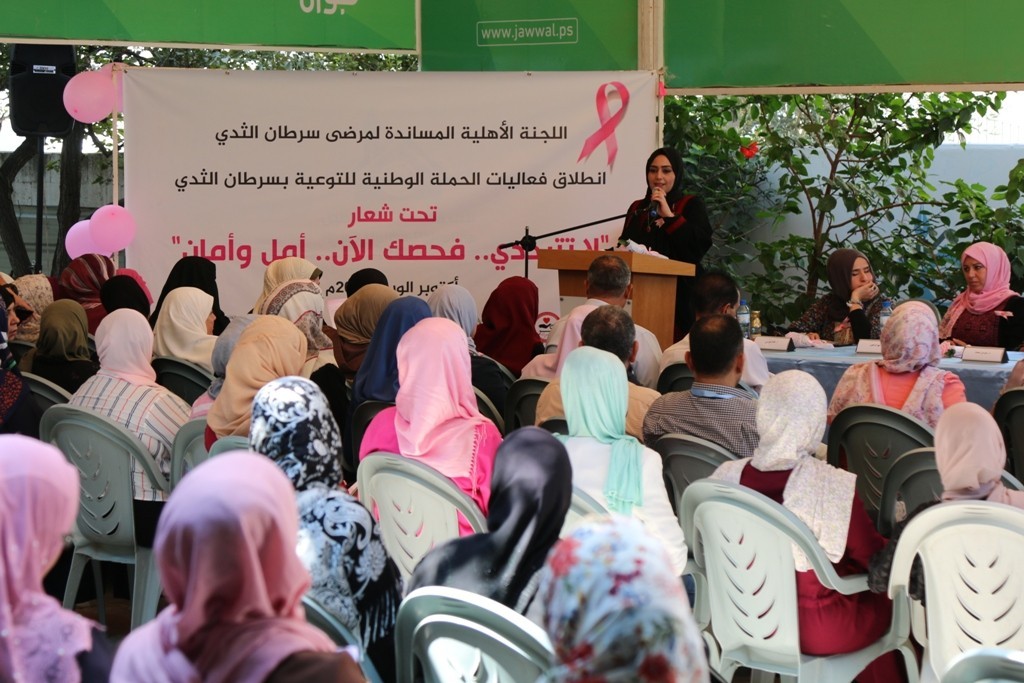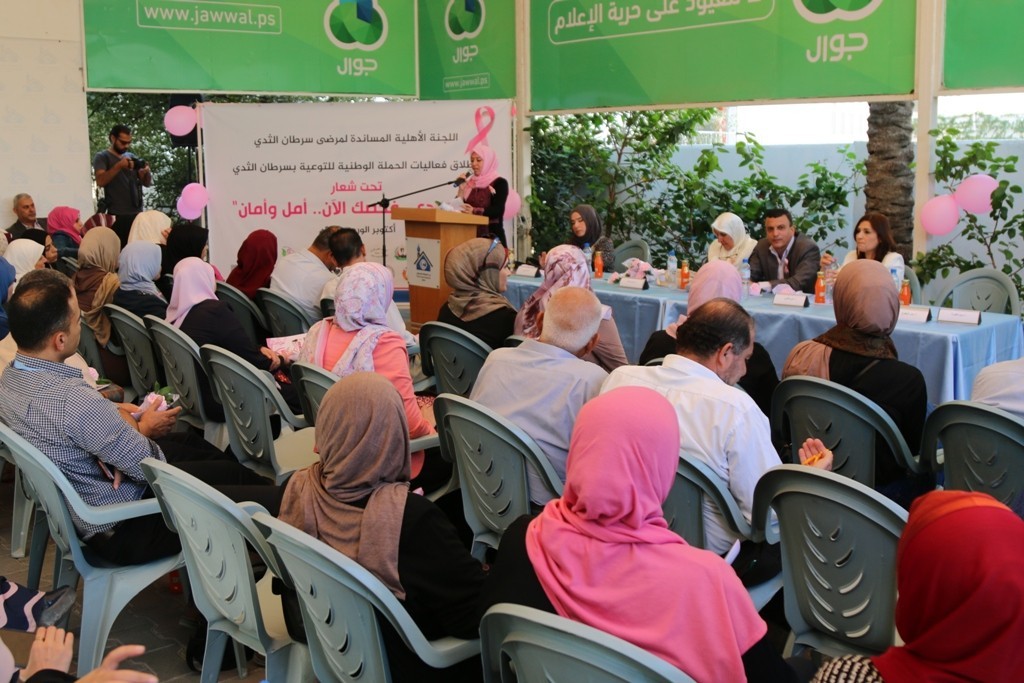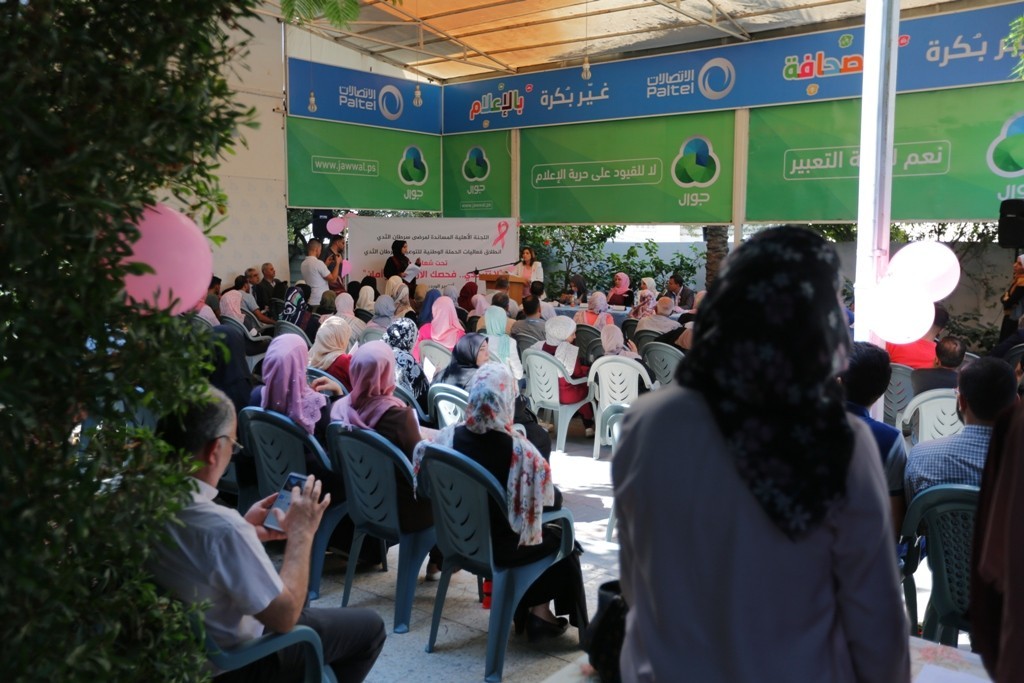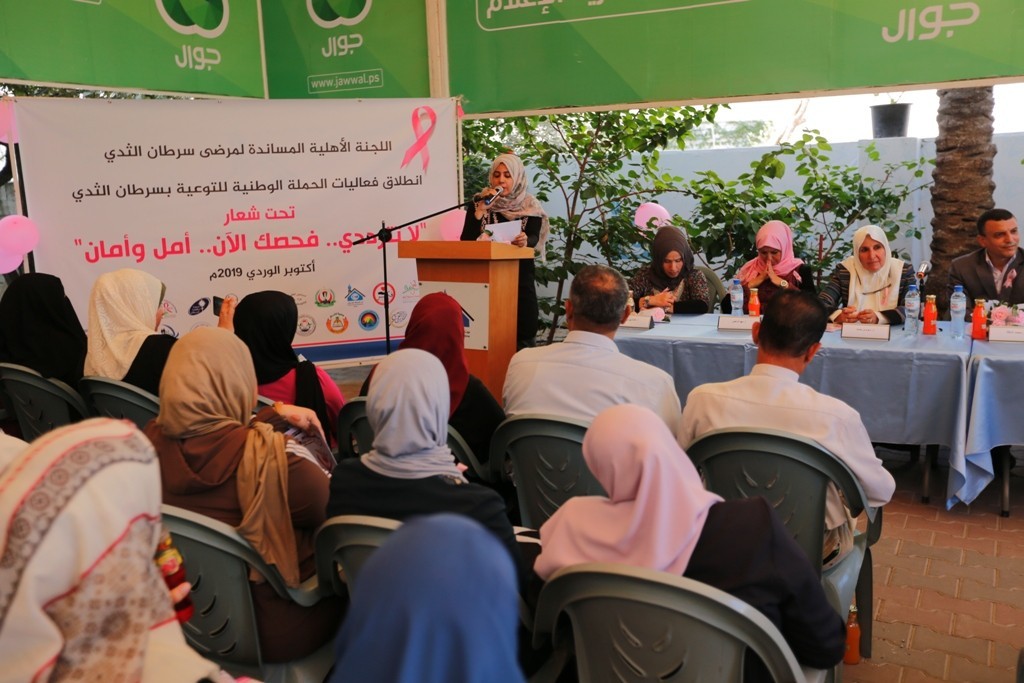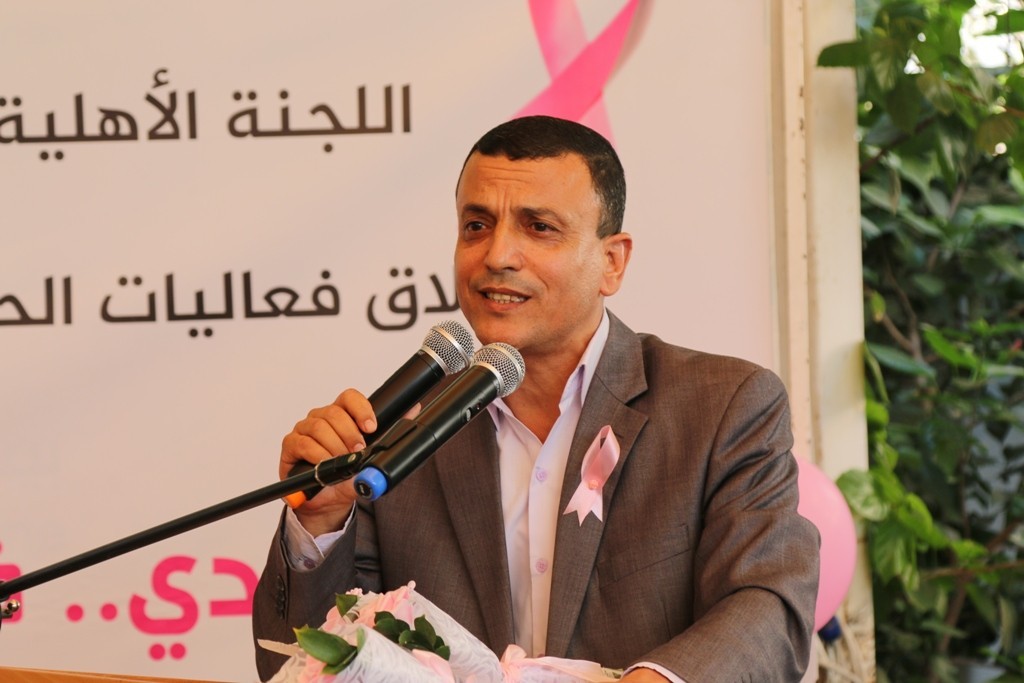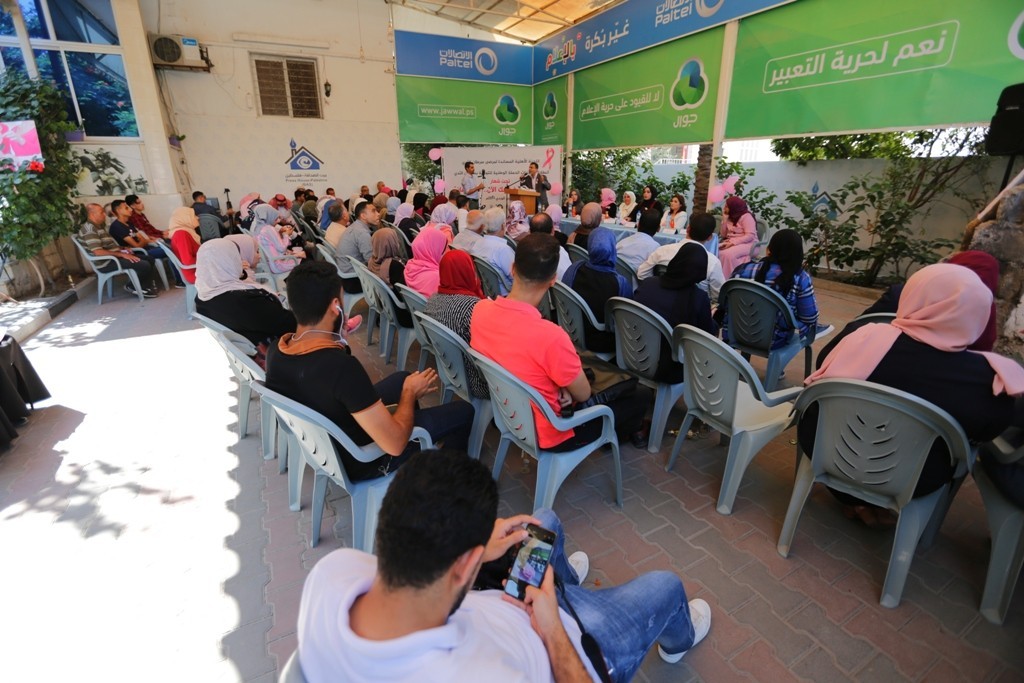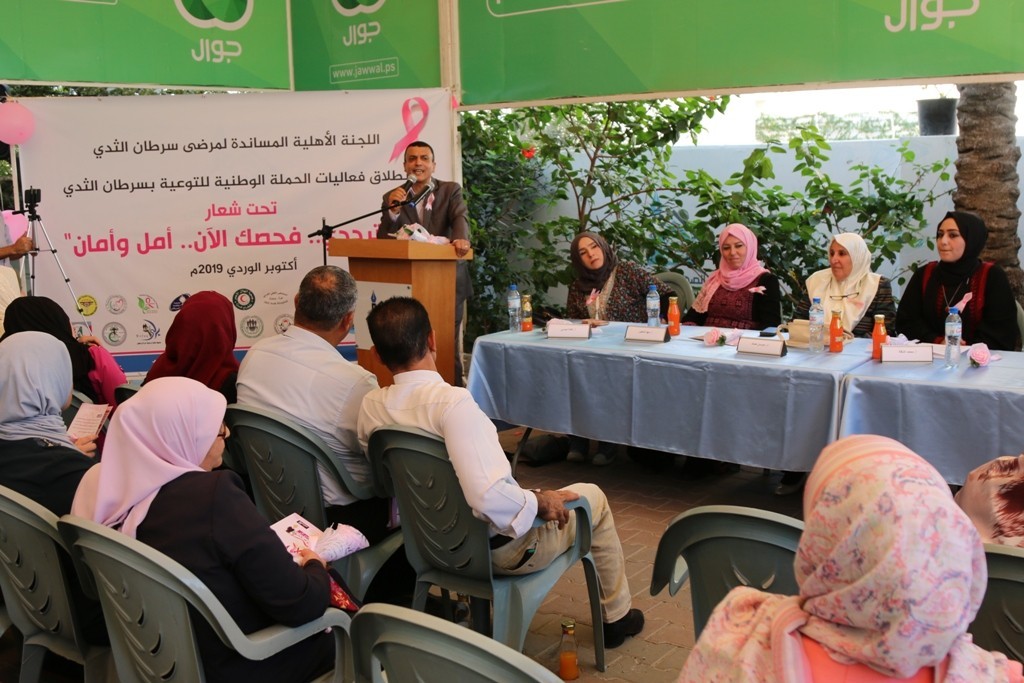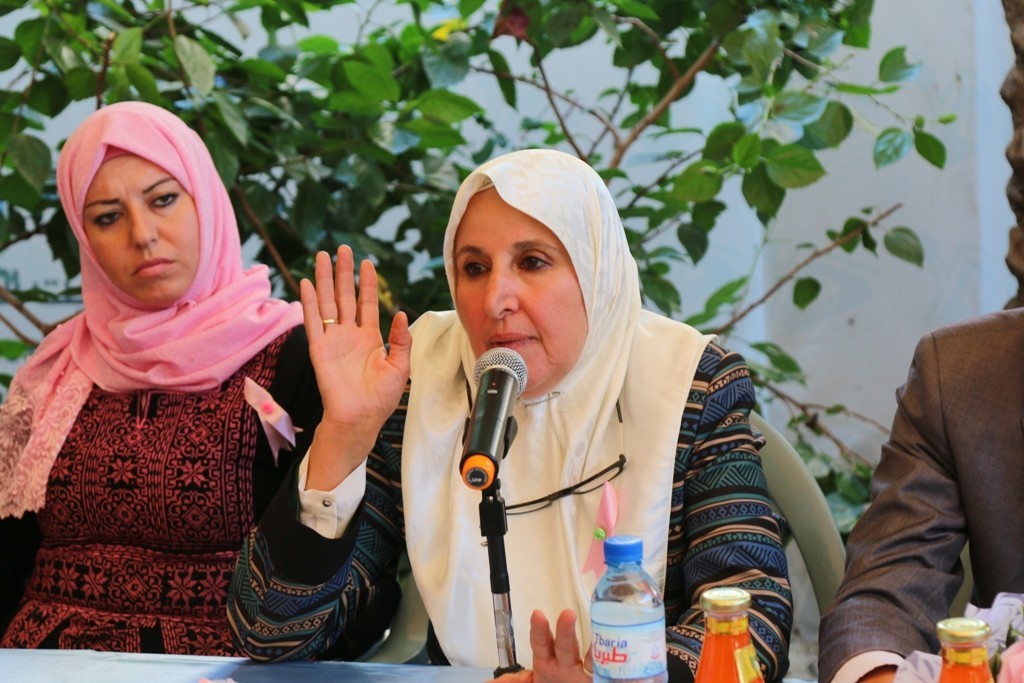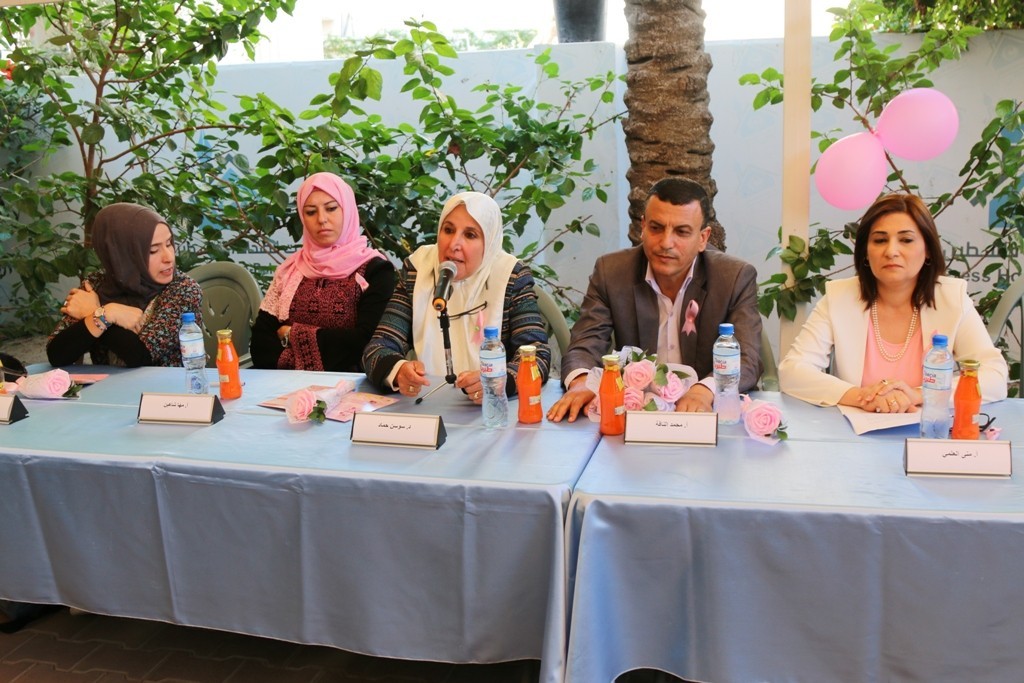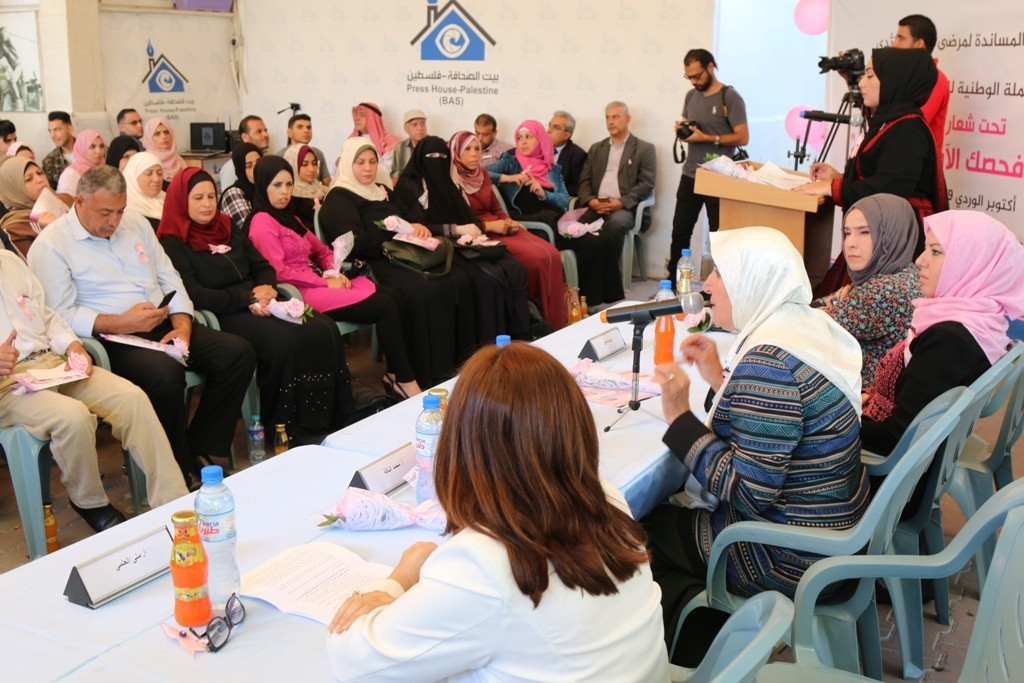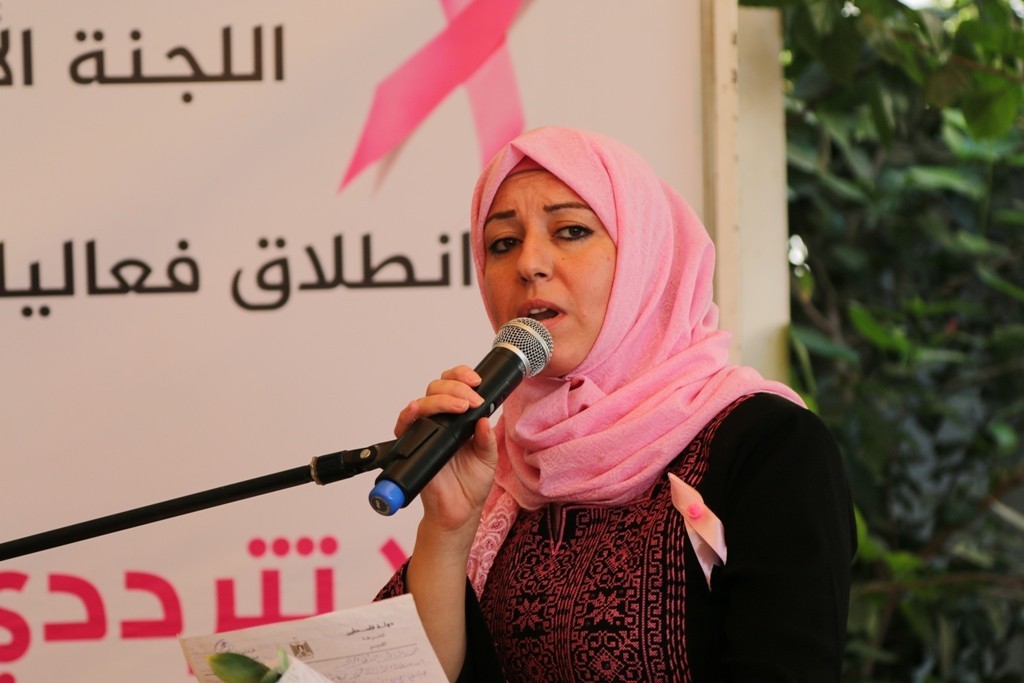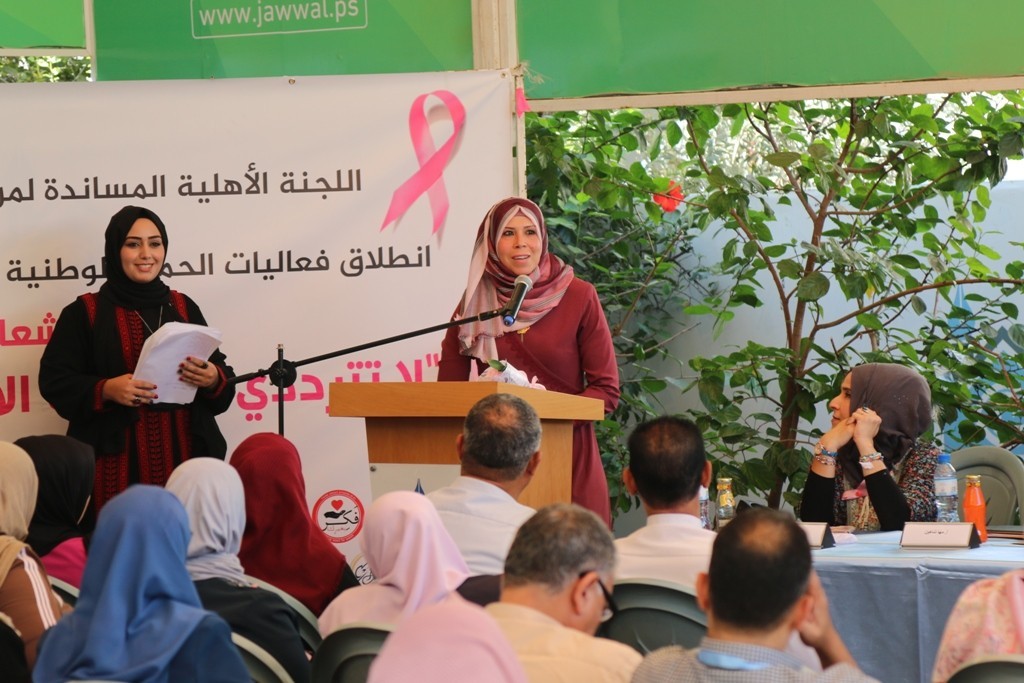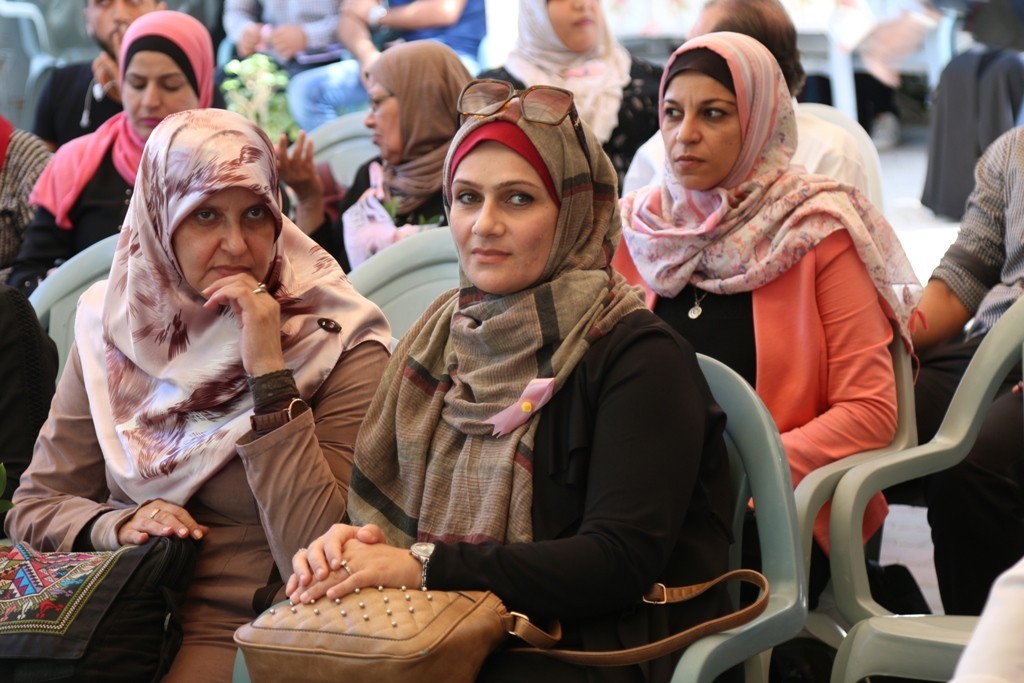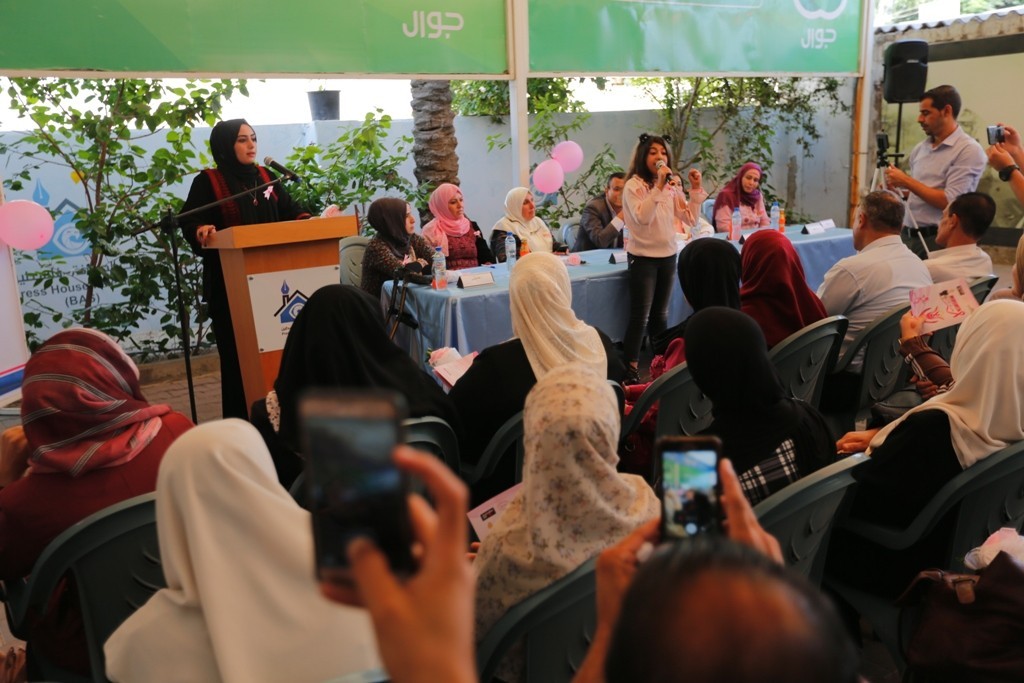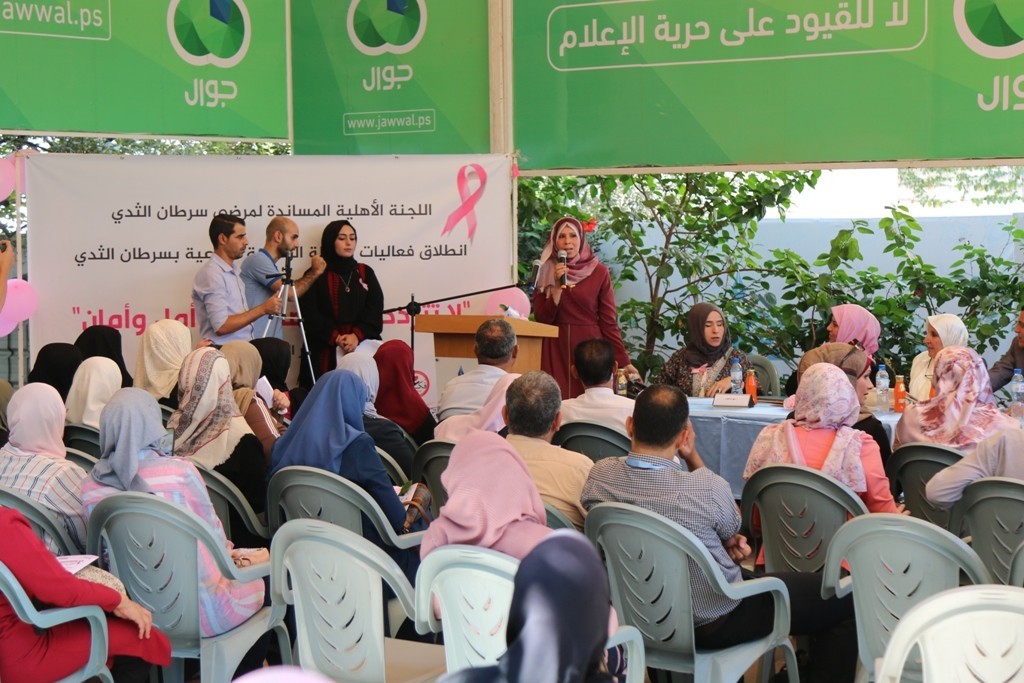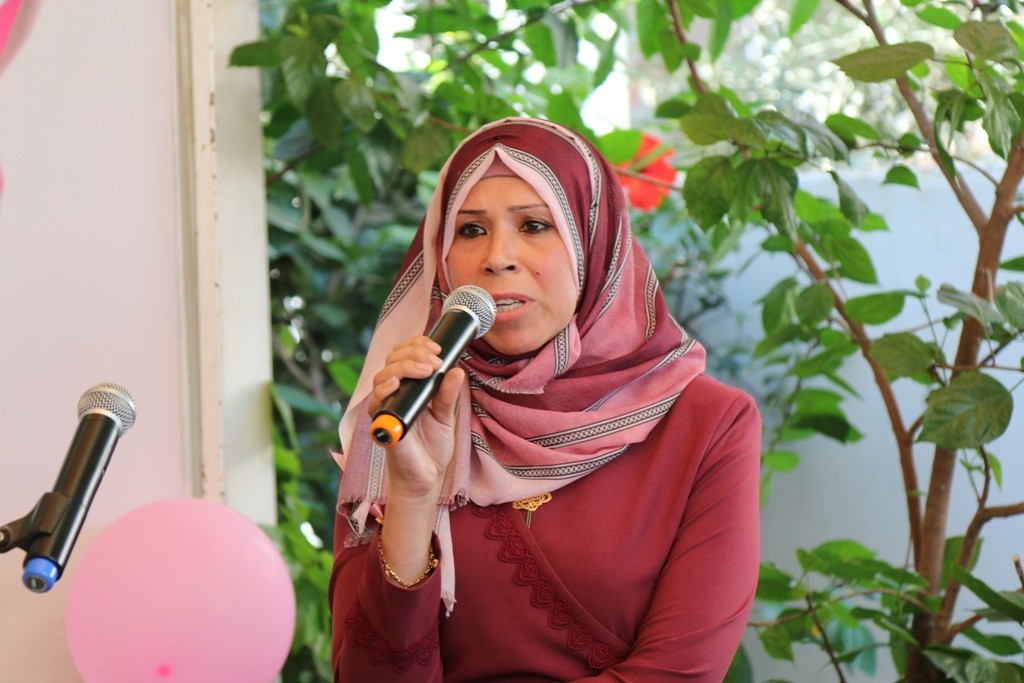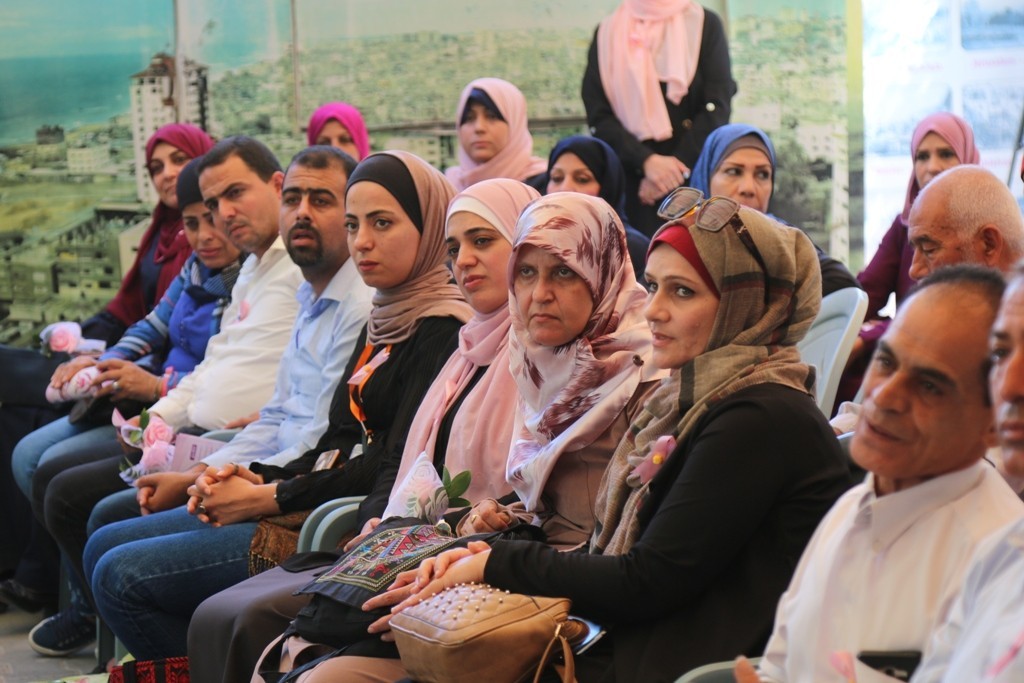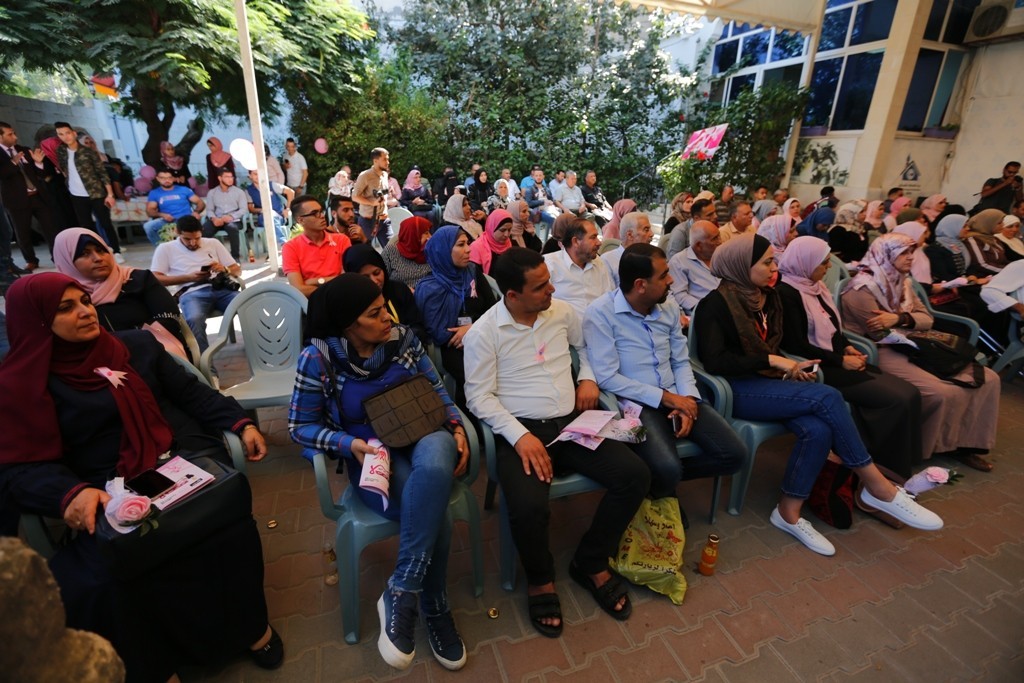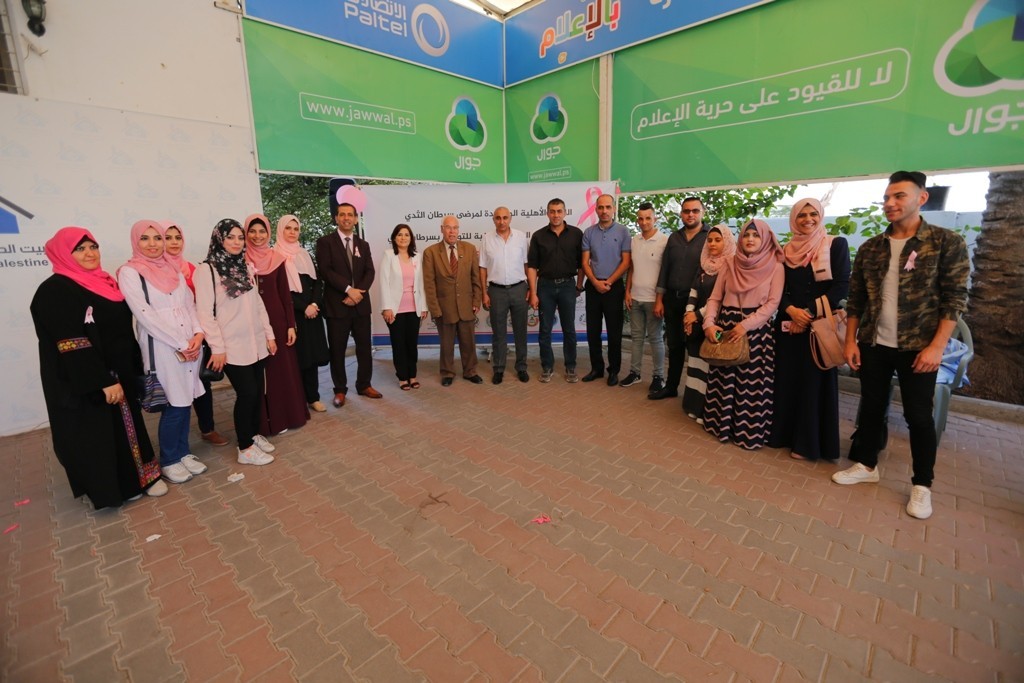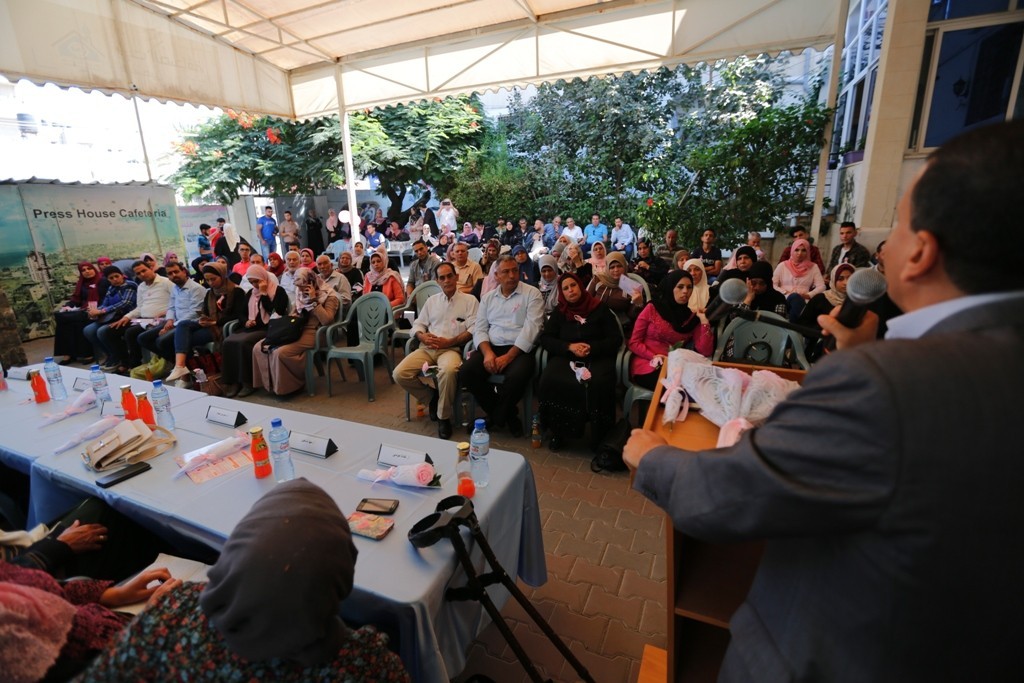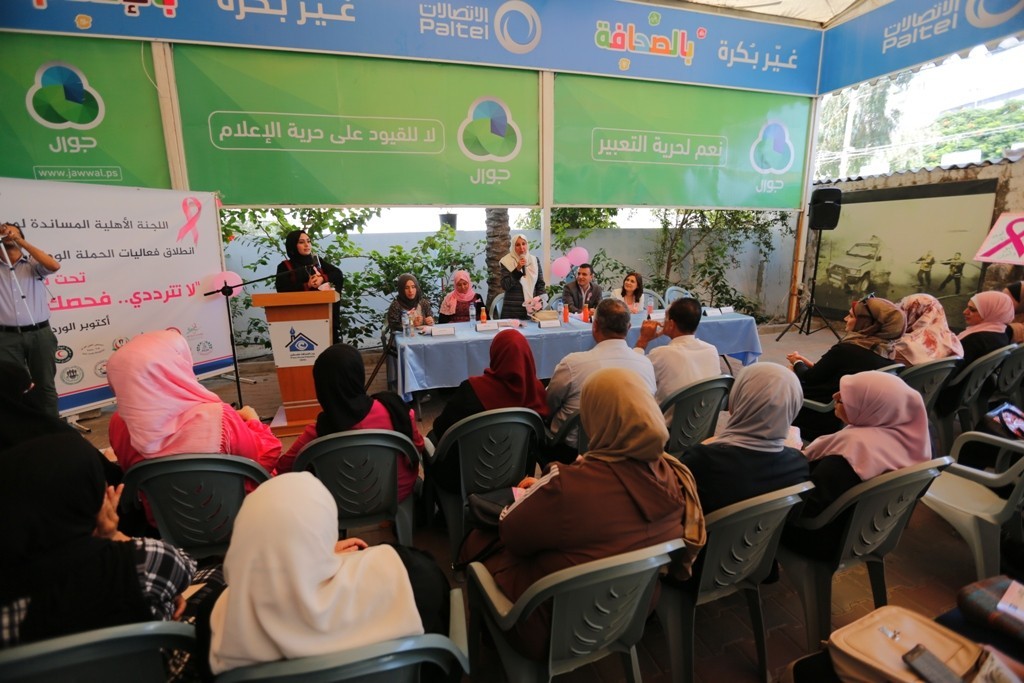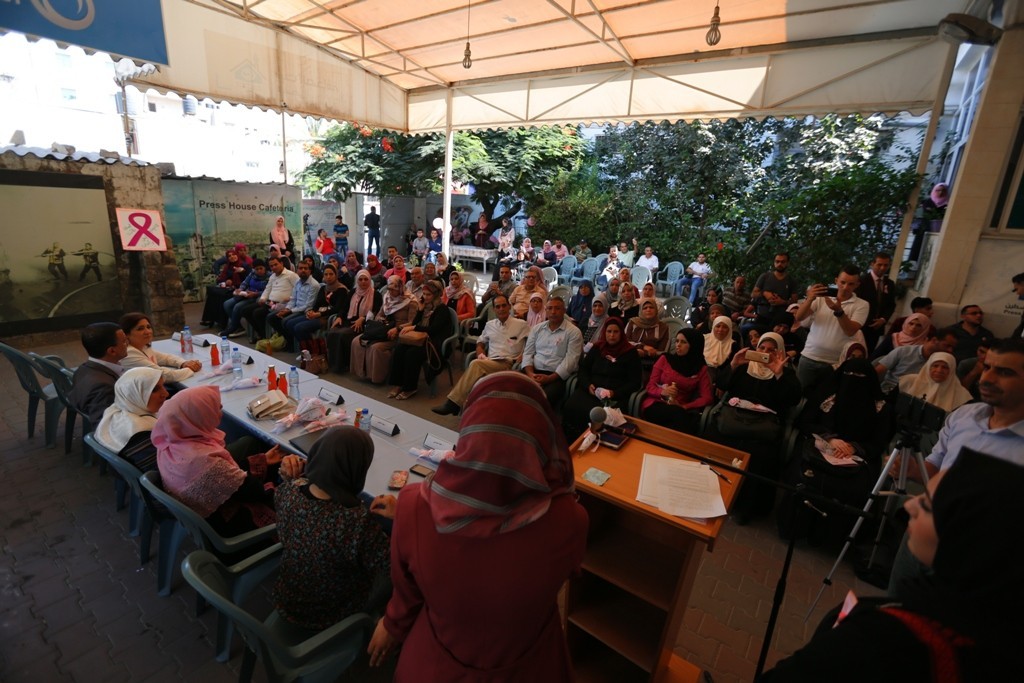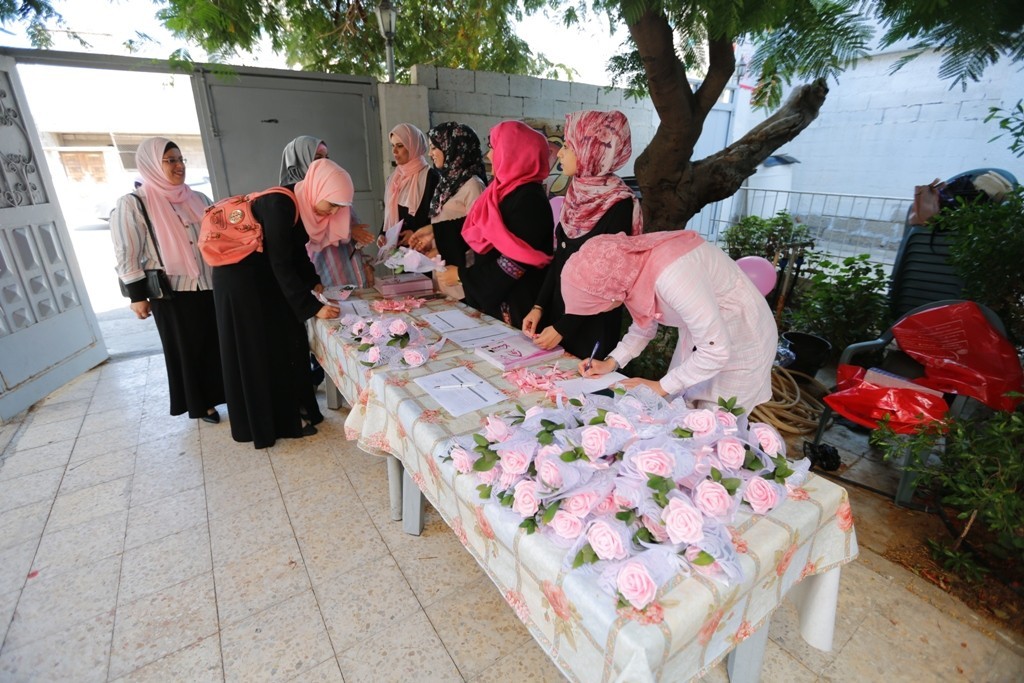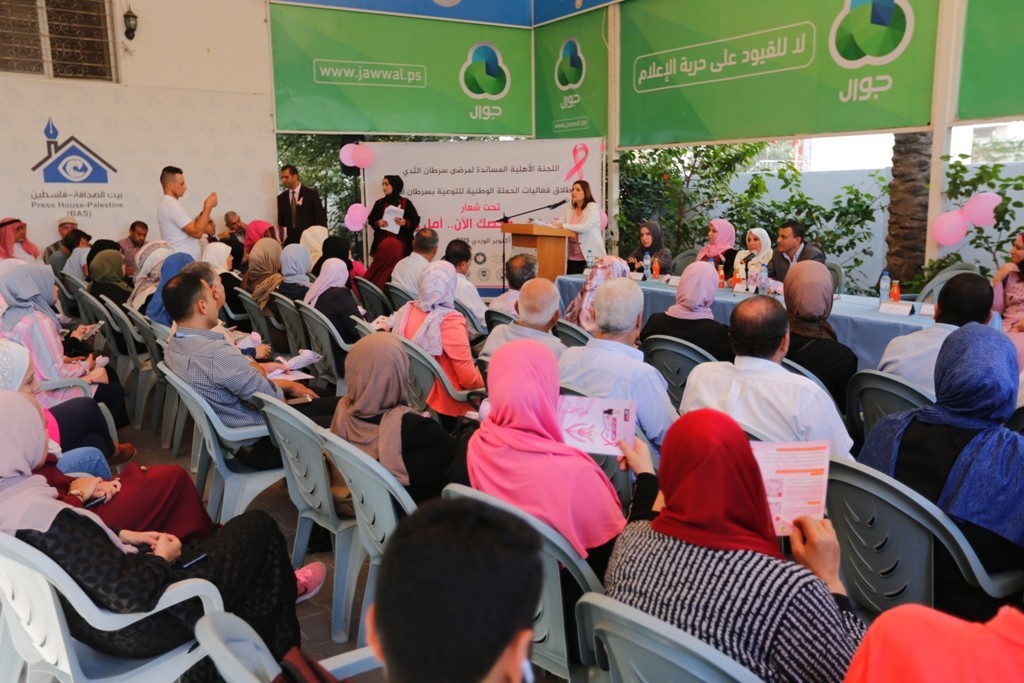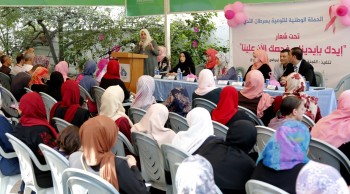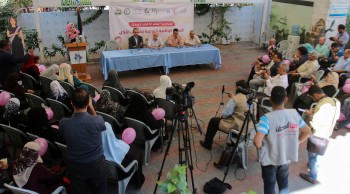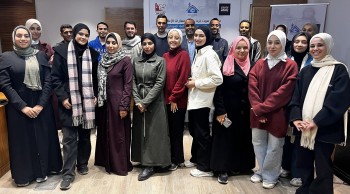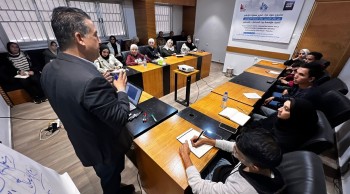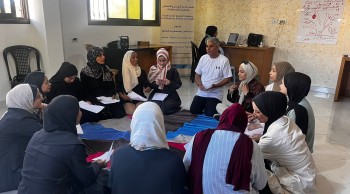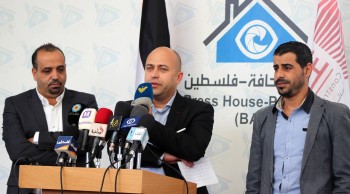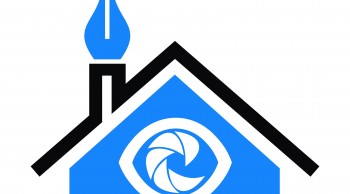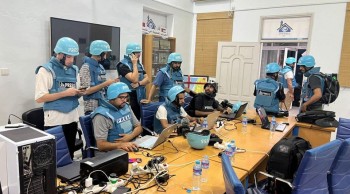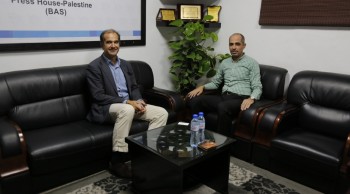On Thursday, the National Committee to Support Breast Cancer Patients launched the National Breast Cancer Awareness Campaign under the slogan: "Don’t hesitate ... check it up now for your safety and contentment”, at the Press House in Gaza City.
The meeting was attended by representatives of the Ministry of Health and a number of partner institutions in the Committee, a group of women survivors and combatants of the disease, and a gathering of community figures and journalists.
At the beginning of the event, Samar Al-Malfouh, the representative of the Press House, welcomed the attendees and the partner institutions, explaining that the Press House organizes this campaign periodically at the beginning of October each year.
Al-Malfouh explained that the launch of the Pink October activities aims to raise awareness about the causes of breast cancer and how to deal with it and inform Palestinian women of the need for screening and early detection.
She delivered a message to the women to join hands to care for their health and not to be lazy or ashamed to detect breast cancer, to avoid entering into advanced stages of the disease, which can hardly be treated.
From her sider, Dr. Sawsan Hammad from the Ministry of Health in Gaza, said that the ministry is cooperating with all local institutions and associations that fight breast cancer, and thanked the press house and partner institutions for their interest in these events.
Mrs. Hammad explained that the incidence of cancer in general and breast cancer in particular is increasing, noting that 300 new breast cancer cases are detected annually in the Gaza Strip
She pointed out that the prevention of the disease is by changing the lifestyle and through walking and exercising, in addition to changing the dietary pattern and avoid high fat and junk food and pay more attention to healthy food
She called for the need to go towards the disease prevention in light of the difficulty of chemotherapy locally, noting that 1500 surviving women need treatment in late stages, and cannot travel abroad because of the difficult circumstances.
She also mentioned that Breast cancer includes cases that cannot be prevented and relate to genetic causes and genetic mutations, while others can avoid infection through prevention and early and periodic detection.
Hammad stressed that the Ministry of Health in Gaza provided a full section for early detection by skilled specialists, free of charge without any formal requirements or financial fees, calling on women to go to the examination centers without embarrassment or hesitation.
She pointed out that women heading to the breast cancer screening centers, does not mean that she has the disease, and the infected woman at the beginning phase will have a 95% chance of survival.
Mona Alami, the Director of Basmit Amal Association for Cancer Care, said that the public and the official institutions should continue to provide support to women in order to prevent the disease and provide early treatment for infected women in the early stages.
Mrs. Alami explained that the association supports cancer patients through several awareness programs in the areas of education and health counseling, and psychological support, calling on the concerned institutions to unite efforts to spread awareness of the importance of early detection of breast cancer.
From his part, Mohammed al-Naqa, the representative of the Arab National Hospital, said that women can overcome the disease by will, awareness and action, pointing out that 25 institutions headed by the Ministry of Health participated in the civil campaign to support breast cancer patients.
Al Naqa called on men to direct their women to the need for early detection of the disease, and support them in the incidence of injury, pointing out that many women were ashamed to talk about their disease, and are now due to awareness campaigns and psychological support face the disease with determination.
Maha Shaheen from Cancer Patients Care Society, spoke about a number of obstacles and difficulties facing the provision of health services to cancer patients in the Gaza Strip, stressing that this was a motivation to continue working and support the patients.
Shaheen stressed that many difficulties were overcome by organizing awareness campaigns and spreading the culture of early detection for women who did not have the disease and providing health and psychological support for infected women with the disease in its various stages.
She explained that it can be fully cured from the disease in the zero stage and the removal of the tumor at its beginning phase, as the recovery rate is 95% in the first stage, and the recovery rate in the second stage reaches 90-80%, while in the third stage the recovery rate is 50-60%.
From her side, Suzan Al-Nahal, one of the disease survivors, said that she was deeply shocked when she first knew she had breast cancer, but she began to adjust to it until she recovered.
She continued: “I am a mother of three children, and I was suffering a lot in the early days of the disease from the surrounding community and the top tired that I have been facing”, adding that the disease had gained her strength, determination and new friends to support her in countering it.
She also urged infected women with the disease to face it and continue to live a normal life, calling on NGOs and institutions to support the infected women and care for them.
